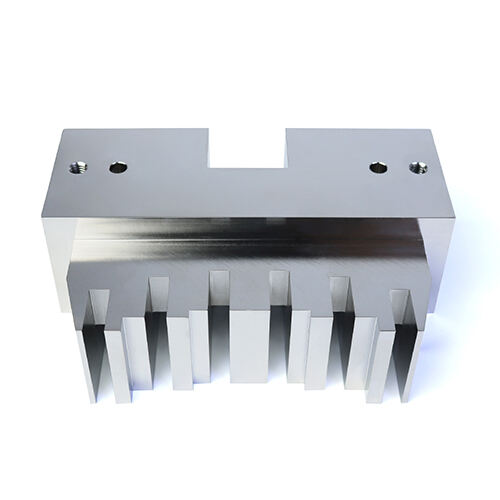Professional Manufacturing Rises to New Heights with Precision Medical CNC Parts
In the context of today's rapid development of the manufacturing industry, precision medical CNC parts are becoming an important force in promoting professional manufacturing to new heights. As medical equipment's requirements for precision, complexity, and reliability continue to increase, CNC (computer numerical control) processing technology is increasingly used in the medical field, providing efficient and accurate solutions for the manufacture of medical equipment.

Manufacturing Advantages of Precision Medical CNC Parts
CNC parts have become a key process in medical device manufacturing with their high precision, high efficiency and high flexibility. For example, the Star CNC SX-38 A/B model can process complex materials up to 42 mm in diameter and support tools up to 0.5 inches in diameter, thus achieving high-precision and high-efficiency micromachining.In addition, equipment such as multi-axis CNC machine tools and Swiss lathes can shorten production cycles, improve production flexibility, and meet the customized needs of medical devices for small batches and multiple varieties.
In medical device manufacturing precision CNC machining can not only produce key components such as surgical tools, catheters, surgical needles, but also manufacture precision parts for complex equipment such as ventilators and pacemakers. These parts usually require extremely high tolerances and surface finishes to ensure their stability and safety in the human body. For example, precision CNC machining can achieve micron-level accuracy, thereby reducing the number of fine-tuning during surgery, improving surgical efficiency and reducing the burden on patients.
High-Performance Materials for Demanding Applications
Medical CNC parts are often machined from specialized materials such as:
• Titanium alloys for implants due to their biocompatibility and strength.
• Stainless steel (316L) for surgical tools requiring corrosion resistance.
• PEEK (Polyether ether ketone) for spinal implants and housings.
• Cobalt-chrome for load-bearing orthopedic applications.
These materials are difficult to machine using conventional methods, but CNC equipment tailored for medical-grade manufacturing ensures both precision and consistency.
Meeting Regulatory and Global Standards
With increasing global oversight, professional manufacturers must comply with stringent certifications such as ISO 13485, FDA GMP guidelines, and EU MDR requirements. CNC machining allows for full documentation of every stage of production, ensuring traceability and compliance.
Enabling Customization and Innovation
Modern medicine is shifting toward personalized treatment, and CNC machining is making this possible. Custom implants dental fixtures, and even robotic surgery components can be rapidly designed and manufactured with precision.
The integration of digital CAD/CAM systems with CNC machining enables quick iteration cycles and rapid prototyping — reducing development time from months to weeks.
Looking Ahead: Smart Manufacturing for Smarter Healthcare
The future of medical CNC parts lies in the convergence of AI, IoT, and automated feedback systems. Professional manufacturers are already adopting predictive maintenance, real-time quality monitoring, and adaptive machining techniques to stay competitive and improve outcomes.


